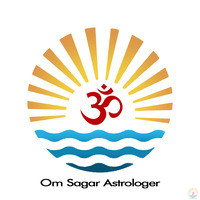Indian astrology, also known as Vedic astrology or Jyotish Vidya, is an ancient system of astrology that originates from the Vedic tradition of India. The term “Jyotish” translates to “the science of light,” reflecting its focus on celestial bodies and their influence on human life. Indian astrology is based on the belief that the positions and movements of planets and stars at the time of a person’s birth can offer profound insights into their personality, life events, and future prospects.

Key aspects of Indian astrology include:
Horoscope (Kundali): A birth chart or Kundali is created based on the exact time, date, and place of an individual’s birth. It maps the positions of planets, stars, and other celestial bodies at that moment.
Zodiac Signs: The zodiac in Indian astrology is divided into 12 signs, each associated with specific characteristics and influences. Unlike Western astrology, which is based on the tropical zodiac, Indian astrology uses the sidereal zodiac.
Planets (Grahas): In Vedic astrology, the nine planets (Navagrahas) are considered significant in influencing human affairs. These include the seven classical planets (Sun, Moon, Mars, Mercury, Jupiter, Venus, and Saturn) and two lunar nodes (Rahu and Ketu).
Houses (Bhavas): The birth chart is divided into twelve houses, each representing different aspects of life such as career, family, health, and relationships.
Dasha System: This system tracks the planetary periods (dashas) that influence a person’s life at various times, offering a timeline for events and changes.
Origins of Indian Astrology
Indian astrology has deep historical roots that trace back thousands of years. Its origins can be linked to the ancient Vedic texts and the broader Indo-Aryan culture.
Vedic Roots: The earliest references to astrology are found in the Vedas, particularly the “Rigveda” and the “Yajurveda.” These texts include hymns and rituals related to celestial phenomena and their impact on human life.
Vedanga Jyotish: The “Vedanga Jyotish” is one of the earliest systematic texts on Vedic astrology, written around 1000 BCE. It is considered one of the six Vedangas (limbs of the Vedas) and focuses on the calculation of time and celestial cycles.
Classical Texts: Key classical texts on Vedic astrology include the “Brihat Parashara Hora Shastra” by Sage Parashara and the “Jataka Parijata” by Vaidyanatha. These texts compile detailed principles and methods of astrology and have been influential in shaping the practice.
Influence of Other Cultures: Indian astrology was influenced by various cultures over time, including Greek and Persian astrology. During the Gupta period (circa 4th to 6th century CE), there was significant exchange of astrological knowledge, leading to the synthesis of different traditions.
BLOG
Top Astrologer In Bhopal
Top Astrologer in Bhopal
Love Problem Solution In Dadar
Love Back expert Astrologer in faridabad
Best Tantrik
Top Astrologer

